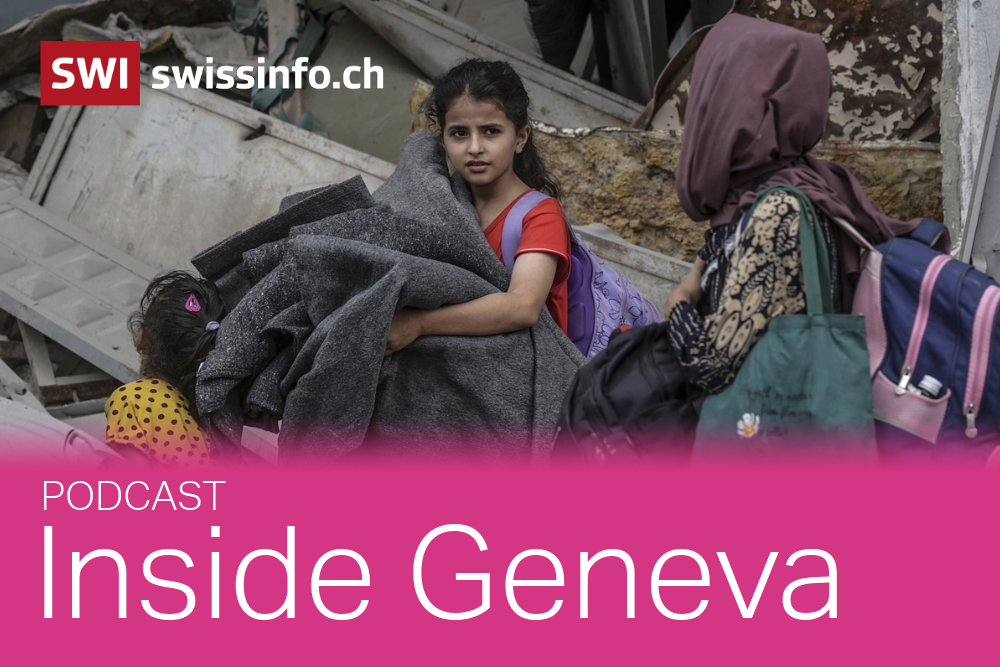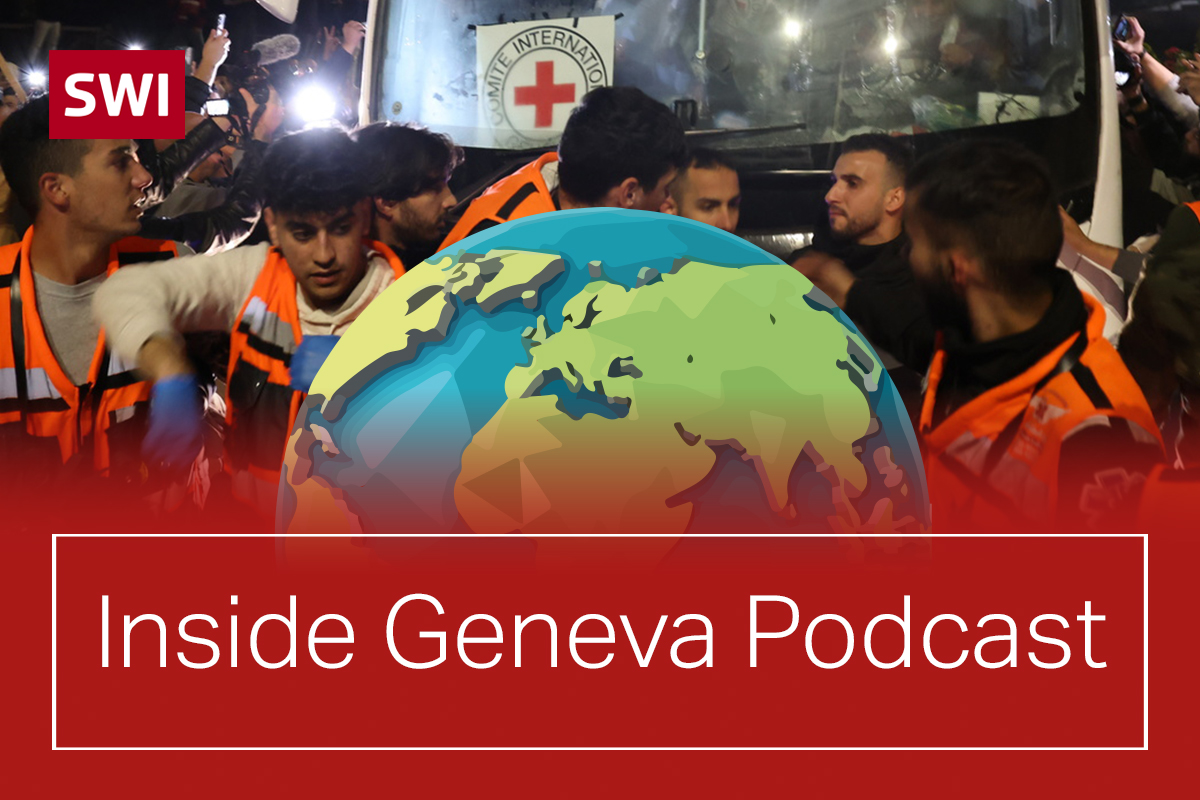
Inside Geneva special: a year of war in the Middle East

It’s been one year since the October 7 attack by Hamas on Israel. Twelve months of violent conflict have followed, with tens of thousands dead. We look back at our coverage over the past year.
“What we have to deal with is the immense stupidity of the wars that currently are in place. And here we are having to deal with wars of a sort that were better found in the history books devoted to the 20th century and ought not to have a place in the 21st,” said Zeid Ra’ad al Hussein, former United Nations Human Rights Commissioner.
How have the aid agencies coped?
“People tend to believe we can do things that we cannot do. We have no army. We have no weapons,” said Fabrizio Carboni, regional director for the Near and Middle East at the International Committee of the Red Cross (ICRC).

More
Inside Geneva: Israel, Gaza, and the challenge to humanitarianism
How do they respond to critics who believe they should do more?
“If we could release them all we would do it as soon as possible. If we could visit them we would visit them. And at the same time it takes place in an environment which is Gaza,” added Carboni.
Why are we so quick to war, and so slow to peace?
+How the Israeli-Palestinian war challenges humanitarian aid
“There’s a focus on the centrality of my pain, the pain my community feels and I feel, and I want the world to stand with me whoever I may be, and I demand it as a recognition of my suffering. But then the obvious question is, but how often do we, as individuals, side with others who are experiencing pain,” said al Hussein.
Join host Imogen Foulkes for this special episode of the Inside Geneva podcast.
Find out more about the ‘Inside Geneva’ podcast and our other Swiss podcasts in English here.
Subscribe below to the ‘Inside Geneva’ newsletter to make sure you never miss a new episode.

In compliance with the JTI standards
More: SWI swissinfo.ch certified by the Journalism Trust Initiative





























You can find an overview of ongoing debates with our journalists here . Please join us!
If you want to start a conversation about a topic raised in this article or want to report factual errors, email us at english@swissinfo.ch.